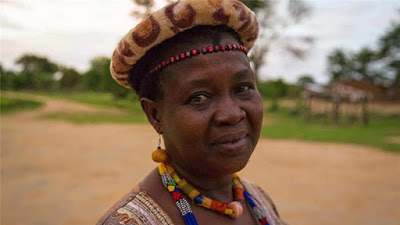Mtakataka, Malawi - The mild-mannered woman who zips around a farmhouse packed with knick-knacks and insists her guests eat a meal before any introductions, presents a character at odds with her fearsome reputation of being Malawi's top marriage terminator. Thirteen years ago, Theresa Kachindamoto could not have conceived of ever leaving her job of 27 years as a secretary at a city
college in Zomba, another district in Southern Malawi.
She had no desire to return home to Monkey Bay, a stunning cluster of mountains in Dedza District around Lake Malawi. Although she had the blood of chiefs - Malawi's traditional authority figures - running through her veins, as the youngest of 12 siblings, a woman, and a mother of five, Kachindamoto never expected to become a senior chief to the more than 900,000 people.
But when the chiefs called, she says, they told her to pack her bags and go home to Dedza district, as she had been chosen as the next senior chief.
She was told that she had been chosen because she was "good with people", and that she was now the chief, "whether I liked it or not", she recalls.
|
|
Terminating early marriage
She was shocked when she saw girls as young as 12 with babies and teenaged husbands, and was soon ordering the people to give up their ways"I told them: 'Whether you like it or not, I want these marriages to be terminated.'"
A 2012 United Nations survey found that more than half of Malawi's girls were married before the age of 18. It ranked Malawi 8th out of 20 countries thought to have the highest child-marriage rates in the world. Last year, Malawi's parliament passed a law forbidding marriage before the age of 18. But under customary law of the traditional authorities, and the constitution, Malawian children can still marry with parental consent.
On the human development index, Malawi is considered as one of the world's poorest places, ranking 160th out of 182 nations. Early marriage is more common in rural areas, where parents are eager to get girls out of the house to ease their financial burden.
Emilida Misomali is part of a mothers group in the village of Chimoya, in Dedza district. They warn parents about the long-term ills of early marriage and childbirth, but say it falls on deaf ears.
"Most of them say 'It's better that she gets married. We can't afford to keep her ... she will make us poorer'," Misomali tells.
No matter the rationale, whether better health, education or wellbeing, Misolmali says "stubborn parents" won't stop giving away their children.
"We see a lot of complications, like cesarean births and girls cut as their bodies are too small to give birth."

No comments:
Post a Comment